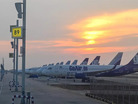 Bloomberg
BloombergTOKYO: Fukuoka, the fastest-growing major city in Japan outside of capital Tokyo, is drawing entrepreneurs from the rest of the country and even abroad.
From the fifth-floor office of his internet startup, Kazz Watabe can see the sea bass jump in the bay as he works on his fishing website to the sound of jazz and the waves washing on the beach below.
It's a scene that could be from any of the seaside startup hubs developing around the world - Seattle, Tel Aviv, Barcelona, Sydney - but Watabe's Umeebe Inc. is in aging Japan, far from Tokyo, in the western port of Fukuoka.
"It's not a bad idea to build your business after thinking first about what kind of environment you want to be in," said Watabe, 30, who moved to the city in late 2013 from Tokyo to develop smartphone apps and software that helps anglers find fish and share pictures of their catch.
Fukuoka is the fastest-growing major city in Japan outside of the capital, which has been steadily draining talent and workers from the rest of the country for decades.This ancient port, hemmed in by mountains and as close to Shanghai as it is to Tokyo, is bucking that trend, drawing entrepreneurs like Watabe from Japan and abroad.
Soichiro Takashima, elected the youngest mayor in the city's history in 2010, is leveraging its status as a national strategic special zone, cutting red tape and introducing incentives like Japan's first "Startup Visa," which gives giving entrepreneurs a six-month exemption from the investment and hiring requirements of a business visa.
"We want to give it a try before anyone else," said Takashima, now 42. "Others will come and see how we do it. That's the fastest way to change Japan."
The parallel with Seattle isn't just geographic. Takashima visited the U.S. west-coast city in 2011 and said he was inspired to create an Asian equivalent in Japan.
Key to Fukuoka's ambition to become an Asian gateway is its location. At the airport, in the heart of the city, planes queue up to fly to destinations like Hong Kong, Singapore and Taiwan. More than 800 million people live within a three-hour flight of Fukuoka. Scrolling signs in Japanese, English, Korean and Chinese guide visitors in the subway, which takes less than 10 minutes to reach the main railway station downtown from the airport.
"It's pretty hard to beat this location," said Noritaka Ochiai, chief executive officer of the Fukuoka unit of LINE Corp., the South Korean-owned company that runs Japan's top smartphone messaging app, in his office next to the station.
LINE Fukuoka Corp. has added more than 600 jobs since opening in November 2013. Women make up half its workers and 30 percent of management roles. About half its engineers are foreigners. "We welcome anyone who has skills, fits our culture and is interested in us," said Ochiai, 42.
Koji Lin, a 35-year-old Taiwanese engineer at LINE, chose Fukuoka over Tokyo in search of a better quality of life and because it's a short flight to his home country.
The city's 7.2 trillion yen ($65 billion) economy is about 7 percent of the size of Tokyo's and average office rents are 50 percent cheaper. While the capital sits in the middle of a conurbation of more than 35 million people, Fukuoka's residents are a short drive from the beach or the mountains.
"I wanted to change the environment and challenge myself," said Lin, a father of two. "Fukuoka was the right size."
Encouraging risk has made Fukuoka a make-or-break city. It has the highest ratio of new business starts among Japan's 21 biggest cities and the second-highest rate of ventures closing, according to the Fukuoka Asian Urban Research Center. Nine out of 10 jobs are in services, compared with 71 percent nationwide.











 Get Unlimited Access to The Economic Times
Get Unlimited Access to The Economic Times
